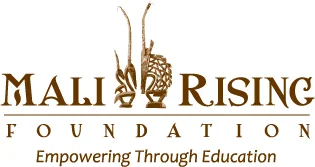As the school year began last month in Mali, one of my first priorities was to ensure that many girls could be enrolled in the Girls’ Project partner schools. To this end, we made radio announcements and meet directly with many families. For the most part, these strategies resulted in great enrollment numbers in the schools.
However, despite all my work I knew there were still some girls who were not yet registered for school in October. For example, in the village of Diorila, the principal of our partner school there informed us that the principal of the primary school in Léna -- one of the neighboring villages of Diorila whose pupils usually go to the middle school of Diorila -- had told him that two girls from his school were not enrolling.
I immediately went to Léna to speak to the principal and then to meet with the parents of these two girls. Each girl faced a different barrier to her continued education. The first girl, Alimatou , did not have a birth certificate and her parents thought that meant she could not attend school. The second girl, Sira, was about to be sent to Bamako to look for work to earn money for the family.
For the first family, I was able to assure them that the lack of a birth certificate was not a barrier to enrolment for Alimatou. The parents were pleasantly surprised and quite happy to enroll their daughter. With Sira’s family, the discussion was a bit tougher because the family really needed the funds Sira might earn in Bamako. However, after a discussion of the longer-term economic benefits for the family of keeping Sira in school, they too agreed to enroll their daughter.
Our intervention was able to solve the problems of both girls and they started school just one week late. Given the distance between Diorila and the village of Léna, the two girls settled in Diorila with one of their relative's acquaintances. In exchange, their parents will send sacks of rice to help the host family in Diorila.
Many girls in Mali’s rural villages see their future destroyed by a simple problem or barrier like this. One of the simplest things the Girls’ Project can do is work with families to problem solve and break down these small barriers.



